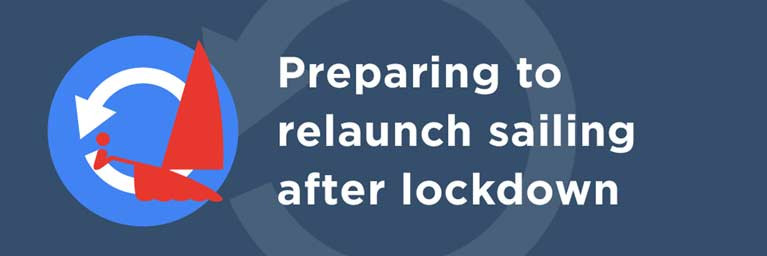Displaying items by tag: Restart Sailing
The UK government’s easing of COVID-19 lockdown restrictions has brought relief to many aspects of life and, particularly certain sports. Sailing is one of those fortunate past-times that is now allowed in England, along with all other forms of watersports practised on open waterways, including windsurfing, canoeing, rowing, kayaking, surfing, paddle-boarding and the use of privately-owned motorised craft (in line with the guidance issued by the relevant navigation authority).
Sarah Treseder, Royal Yachting Association (RYA) Chief Executive has been quoted as saying: "We are pleased that Government guidance has confirmed that all forms of watersports including sailing, windsurfing and motor-boating are not only permitted, but are being actively encouraged in England.”
Treseder is quoted as adding that: "We are aware that marinas, clubs and other venues are working hard to facilitate a safe return to boating activities, although it will inevitably take a while before the full infrastructure is operational.”
This last remark echoes the concerns raised by Restart Sailing’s recent survey of Sailing Clubs, the marine industry and interested individuals. While the return to the water is welcomed, it will be some time before normal service is resumed. Most worrying is the need to protect institutions and businesses starved of income and at risk of permanent closure leaving sailors unable to practice their sport.
The survey was undertaken prior to the recent easing, but according to Simon Lovesey, founder of Restart Sailing, the results remain relevant and offer a glimpse into the difficulties faced by the sport. “The key takeaways are that individuals, clubs and businesses are desperate to see a return to on the water activity provided it can be done safely and responsibly,” says Lovesey. “However, there is widespread concern that the lockdown will take considerable time to unwind and some clubs and businesses may not survive.”
The survey’s Executive Summary highlights a number of issues, many of which are common to other sporting activities:
The sailing sector (clubs, classes and trade) is facing massive financial struggle with all activity cancelled and drops in membership renewals and other expenditure 59% of respondents believe that financial concerns will continue into the foreseeable future as Government financial support fails to reach all parts of the sector.
Real concern exists over the length of time and amount of money that will be required to restart as facilities and equipment have been effectively mothballed
Advice and guidance from the Government, Local Authorities and the RYA during the period of lockdown has been mixed Covid-19 has created a lack of confidence in people and this may inhibit the return to sport.
Equally, if the sport is seen to return to early and irresponsibly there could be real reputational damage.
Interestingly, on the positive side, the respondents indicated that Covid-19 could present opportunities to reboot the sport and institute much-needed reform.
Overwhelmingly, respondents felt that there was a need for better communication from the authorities and that similar situations in the future would be better managed with proper planning, greater agility and acting earlier.
Respondents are hopeful that at the end of the pandemic there will be lasting evidence of change in habits with greater emphasis on local events and support for local clubs and businesses. Reducing costs, improving use of technology and addressing the sport’s environmental impact are priorities.
In the immediate term, respondents are keen to see proper well thought through guidance on measures that will help reduce the risk of contagion. The continued focus on hygiene is seen as critical, as is introducing clear, simple to follow social distancing rules in marinas and boat parks. Sailing events should only be conducted if and so long as protective measures are easy to institute, follow and enforce.




























































